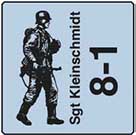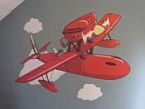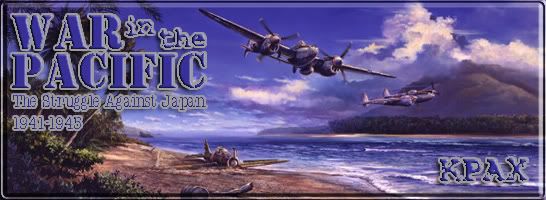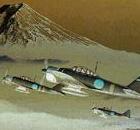juliet7bravo
Posts: 894
Joined: 5/30/2001
Status: offline

|
quote:
ORIGINAL: Bradley7735
J7B,
anyway, my 2 cents
Sorry, you're right...strike "Aleutians" and insert "MiddleoftheDesert, USA", or "LostintheJungle, Java" instead.
One thing accounts, from every nationality, seem to agree on is that fighter pilots, regardless of technical expertise, who survived their first few combats, and/or got a kill or two had greatly increased likelyhood of survival. Combat experience important commodity, only one way to get it, and the stats should reflect this. Any number of highly respected and technically proficient pilots had extremely short violent careers as combat fighter pilots.
Ditto for bomber pilots, which is why the required exp. ratings for naval attack, skip bombing, ect.
Complexity...that's not intended as a formula. But those are the factors that should impact individual pilot ratings at war start. The pilots have ratings, that had to have come from somewhere when they're keying them into the database. Unless they're just making them up as they go along, they have to have some basis in reality. Examples;
(1) Some units stand out in the historical record because of outstanding professionalism (or a lack thereof), most didn't.
(2) A USN fighter pilot probably should have a higher base training rating than a USA pilot.
(3) A USN carrier fighter squadron flying Wildcats should have a higher base unit rating than an Army unit in Nevada desert flying P-35's (madeup example) or some similiar obsolete POS. Or an IJN carrier unit flying Zeros vs. a unit in China flying Claudes.
(4) All things being equal, an O-4 pilot should have a higher base (non-combat) experience rating than a snot-nose O-1.
The actual numerical experience rating is pretty unimportant. What IS important is that it's derived from common standards, based on common values, and applied evenly and consistently across the board. Modification to this would be the steady degradation in the base training/experience rating for Japanese pilots reporting to the pilots pool as casualties increase and the war progresses.
Only wildcards being bonuses given to individual pilots known to have been phenomenal performers. And, just like the "sliding scale" based on time period for ASW, flak, torpedoes, ect. effectiveness, I think the Japanese should be given an overall performance bonus for roughly the first 3-4 months to reflect "shock and awe". Starting Dec 07, steadily tapering off to zero. Would saves all the contortions required to reflect their early war success via tweaking the stats to justify it and screwing things up as the war progresses.
|
 Printable Version
Printable Version





























 New Messages
New Messages No New Messages
No New Messages Hot Topic w/ New Messages
Hot Topic w/ New Messages Hot Topic w/o New Messages
Hot Topic w/o New Messages Locked w/ New Messages
Locked w/ New Messages Locked w/o New Messages
Locked w/o New Messages Post New Thread
Post New Thread